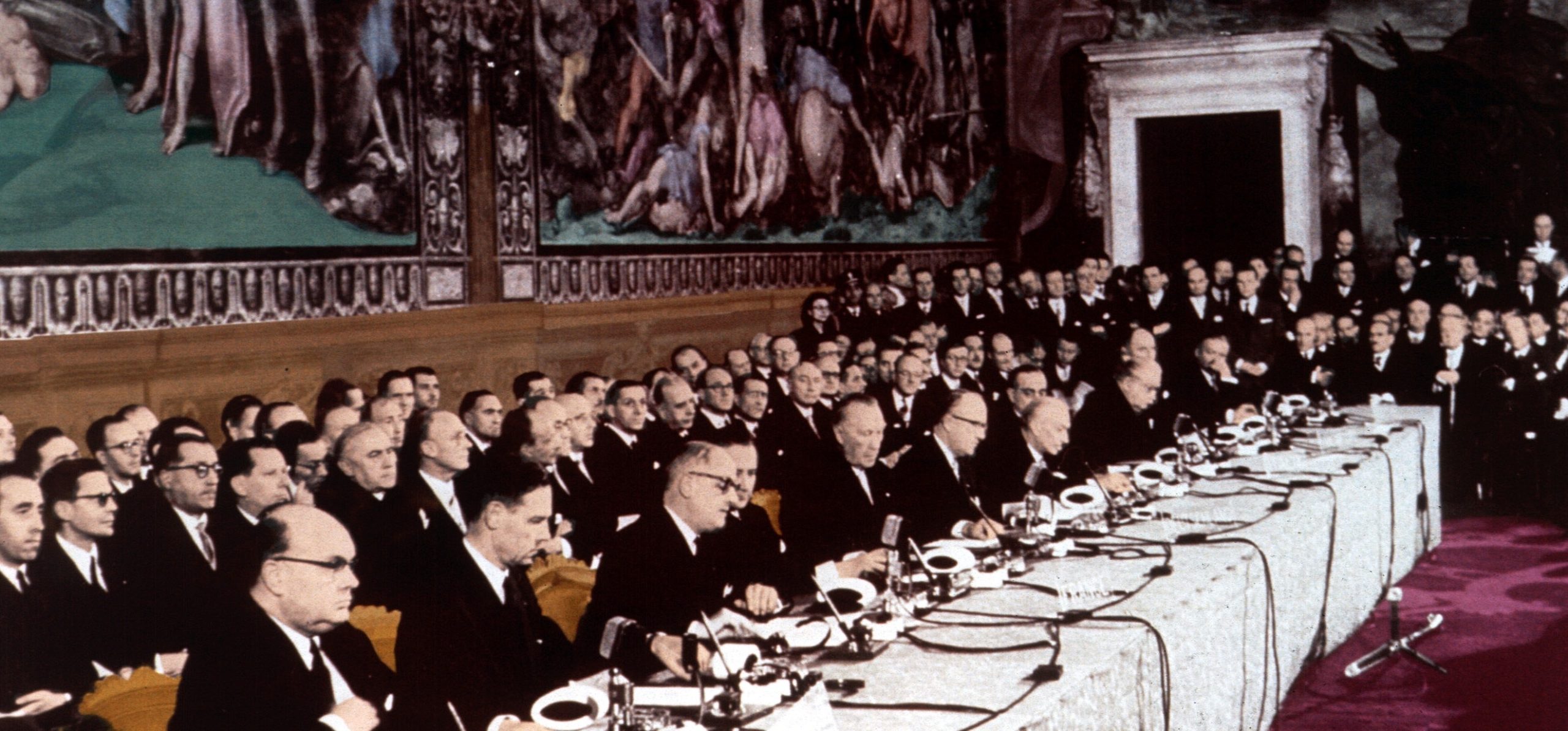Exactly 65 years ago today the representatives of six nations gathered in Italy to sign the Treaty of Rome. With a flourish of their fountain pens, they brought the European Economic Community — which became the European Union — into being. Except that what the founders actually signed was mostly blank paper. The missing text was still at the printers, so they had to make do.
Looking back, they should have stuck with the empty pages. From its very first line — a resolution to “lay the foundations of an ever-closer union among the peoples of Europe” — the treaty was a mistake of historic proportions.
Clearly, the EU does more to facilitate the flow of commerce than a normal free trade agreement. But compared to, say, the relationship between the US and Canada, it’s not that much more. Without the commitment to ever-closer union — and the federalism that flows from it — Europe could have had 80% of the trade benefits for 20% of the hassle.
And that’s the EU’s fatal flaw. It isn’t just the financial cost of contributions to the EU budget or even the political cost to national sovereignty. More than anything, it’s the opportunity cost: all of the things that the nations of Europe could have done together if they hadn’t been trying to build a federal state that wasn’t needed.
Just think about the EU’s failure on something that certainly is necessary: energy security. Back in 2000, the European Commission published a policy paper entitled ‘Towards a European strategy for the security of energy supply’. It warned that the EU’s dependence on imported energy was a “structural weakness” and that “if no measures are taken” the situation would only get worse.
Well, it did get worse. The Commission stood-by uselessly while the Germans worked with the Kremlin to deepen the EU’s dependency on Russian gas and oil. That’s why, in 2022, Europe sends its sympathy to Kyiv and its money to Moscow.
Consumed by its own internal politics, the EU has consistently flunked its response to external threats. From defence spending to the migration crisis to the roll-out of the Covid vaccine, Brussels has bungled them all.
It’s not just Eurosceptics who should be asking whether the EU is fit for purpose, but Europhiles too. There’s a powerful case for more, not less, co-operation among the nations of Europe — but that won’t happen unless they can free themselves from constant distractions of ever-closer union.
I’m not saying that the EU should abolish itself, but it should go into maintenance mode only. Every non-essential programme should be closed and non-essential institutions, like the European Parliament, mothballed.
Non-EU organisations like NATO show that nations can pool their resources without pooling their sovereignty. And by trying to do one thing well instead of everything badly, they succeed. In rising to the challenge of energy security, the nations of Europe need a NATO-like alliance dedicated to the purpose, not the creaking bureaucracy of Brussels.
Of course, it would be churlish not to wish the European Union a happy birthday. However, 65 is a good age to retire. It is time to let Europe take a different shape.











Join the discussion
Join like minded readers that support our journalism by becoming a paid subscriber
To join the discussion in the comments, become a paid subscriber.
Join like minded readers that support our journalism, read unlimited articles and enjoy other subscriber-only benefits.
Subscribe